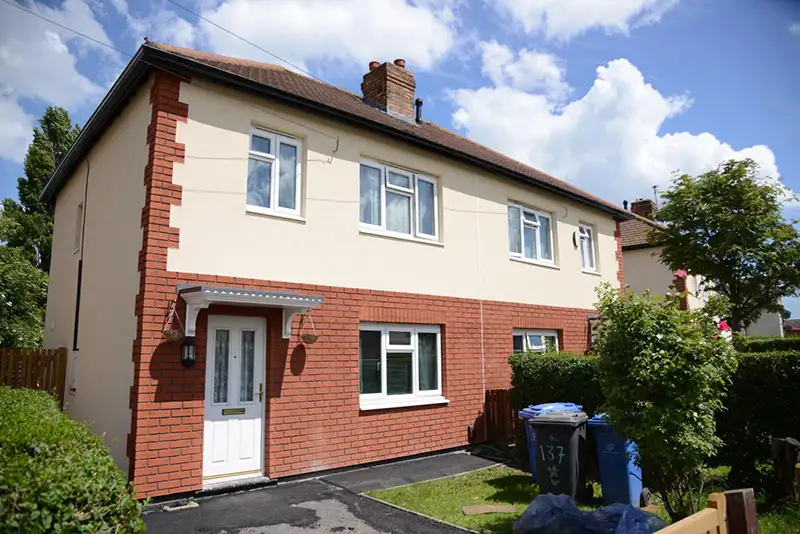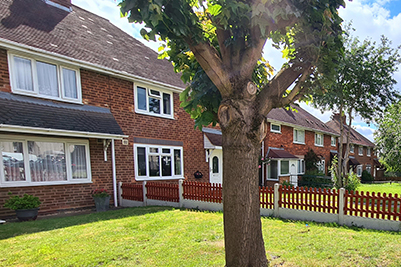CWAG Newsletter – January 2025

This Update includes the following
Social Housing Rent Consultation
CWAG has submitted a joint response to the Social Housing Rent Consultation with the Association of Retained Council Housing (ARCH) and the National Federation of ALMOs (NFA).
The response focusses on the importance of achieving a ten-year settlement based on CPI +1% plus an annual allowance for convergence.
Drawing on analysis undertaken by Savills for the social housing sector in December 2024 the response makes the case that whilst the proposed longer term rent settlement based on CPI plus 1% would be helpful, it would be insufficient to bridge the immediate funding gap between income and expenditure requirements and will need to be bolstered by additional measures.
The Savills research demonstrates that CPI +1% over 10 years with a convergence policy to bring all local authority rents up to formula would make a material improvement both in the short and longer term, bringing the national HRA to a cumulative surplus within 10 years (based on a convergence amount of up to £3/week). In practice therefore additional funding will be required to deliver newbuild in the short to medium term.
Local Authority Claims Harvesting Survey Report
This survey of Right to Repair claims harvesting activities across the local authority sector is a joint NFA, CWAG, ARCH project, which is also supported by the Local Government Association (LGA) and Housing Ombudsman Service (HOS). The survey work was carried out by the NFA on behalf of the group.
The survey brings together currently available data on the activities of claims harvesting companies in the 31 authorities that responded to the survey. This data is a valuable starting point for developing an evidence base on the scale and cost to landlords of claims harvesting activities, as well providing detailed case studies and documentary evidence around unscrupulous practices and the impact on tenants.
The report highlights concerns that the proposed implementation arrangements for Awaab’s Law risk significantly worsening the scale and impact of claims harvesters on the sector and makes the case for a number of relatively straightforward policy changes – see recommendations below. These proposals would not impact tenants’ ability to bring disrepair cases against their landlords but would be a major step forward in tackling poor practice in the sector.
Recommendations
- Introduce fixed recoverable costs in housing disrepair cases.
- Cap the maximum proportion of a compensation award that a claims management company can take, and cap the referral fees that solicitors pay to Claims Management Companies.
- Set out clearly in regulation the steps that must be taken before a disrepair claim goes to court, including giving the landlord a reasonable opportunity to resolve the problem through the landlord’s complaints process and the Housing Ombudsman Service.
- Strengthen penalties against poor practice.
- Review and increase the £1,000 threshold for repairs which has been in place since 1991 to stop claims harvesting companies from artificially inflating repairs costs just over the threshold.
- Regularly gather data from local authorities on claims harvesting and disrepair so government can monitor the impact on Housing Revenue Accounts over time.
The full report is available to CWAG members – contact the Policy Officer for further details.
Recent Publications
Housing Revenue Account Research Update – Savills (October 2024)
This report into financial pressures on council Housing Revenue Accounts (HRAs) was undertaken by Savills for the LGA, ARCH and the NFA. It updates earlier work by Savills in late 2022 and early 2023 and includes a reworking of the sector’s capital investment needs over the next 30 years (at todays prices) as well as the latest information on additional revenue pressures arising from the Awaab’s Law changes, enhanced regulation and new professional qualification requirements for housing staff.
Housing Revenue Account research update | Local Government Association

Right to Buy is Broken – the case for change – Yorkshire Housing
Published at the same time as the Government’s consultation on changing the Right to Buy scheme, this report sets out more radical approach that would both reverse the loss of social housing through Right to Buy and provide a fairer system to help more people achieve their home ownership ambitions.
yhl-7807-right-to-buy-is-broken-031224.pdf
Sector Risk Profile – Regulator of Social Housing (RSH) – October 2024
The RSH has published the 2024 Sector Risk Profile which is an annual overview of the most significant risks currently facing social landlords. This year the report highlights increasing risks around viability as financial performance continues to weaken in the face of both internal and external pressures.
With financial capacity within the sector increasingly strained, landlords are prioritising investment in existing stock, a trend that is likely to continue as government moves forward with plans for a new Decent Homes Standard, as well as Minimum Energy Efficiency Standards, and new requirements in terms of professional standards through new Competence and Conduct requirements. However, government is also expecting the sector to support delivery of a substantial newbuild social / council house building programme as part of the policy to build 1.5 million homes over the next five years.
The introduction of proactive consumer regulation and the associated inspection regime also brings new pressures and risks as landlords must demonstrate they are delivering against the consumer standards, providing assurance which is underpinned by accurate, up-to-date and complete data. Additionally for Councils with ALMOs it is essential that the landlord maintains oversight of service delivery; failure to do so risks tenants’ safety and the quality of homes, as well as damaging the landlord’s reputation.
Sector risk profile 2024 – GOV.UK
2023/24 Tenant Satisfaction Measures (November 2024)
The RSH has published its analysis of the results from the first year of Tenant Satisfaction Measures (TSMs) as well as its National Tenant Survey.
TSMs are primarily intended to help tenants hold their landlord to account in key areas, including repairs and maintenance, and complaints handling. They also provide valuable insights which landlords can use to improve their services. Although the collection format does not allow direct comparison of TSMs between landlords, they provide an important source of information for the RSH ‘s ongoing regulation of the sector. The National Tenant Survey is an independent survey, commissioned by RSH, to provide greater insight into the factors that influence TSM results.
The key findings are:
- The biggest driver for overall satisfaction is a tenant’s view of their landlord’s repairs service and how well their home is maintained.
- Most social housing tenants (over 70%) are satisfied with their landlord’s service, feel their home is safe and well maintained, and that their landlord treats them with fairness and respect.
- However, around one in five tenants not satisfied with their landlord’s service, and only one third of affected tenants are satisfied with the way their landlord handles complaints.
- Shared owners are the least satisfied, with only around 50% satisfied with their landlord’s overall service.
Housing Ombudsman Reports – Learning from Severe Maladministration
The Housing Ombudsman has published two new reports focussed on severe maladministration cases which aim to prepare the sector for the introduction of Awaab’s Law.
Taking the key lessons from our severe maladministration decisions – (October 2024)
This report focusing on ‘damp and mould – timeliness’ considers HO casework where landlords have struggled to respond appropriately to reports of damp and mould, with unacceptable delays and deteriorating living conditions often experienced by tenants.
Several of the case studies include significant compensation orders and the rationale underpinning them. Awards are intended to reflect the impact of issues such as compromised living conditions, partial loss of the use of the property, damage to possessions as well as the circumstances of the household including health issues or the presence of children. Awards are individual and specific, rather than formulaic. The examples are intended to help landlords better understand compensation issues taking account of what is fair and reasonable in the specific circumstances.
Learning from Severe Maladministration (housing-ombudsman.org.uk)
Taking the key lessons from our severe maladministration decisions – Dealing with Hazards (December 2024)
Property condition is the top complaint category at the Ombudsman and many cases involve the presence of hazards in the home and their associated risks. The report highlights cases where landlords have failed to identify the need for more urgent action where a hazard is present.
Key learning points include the need to be much more proactive in identifying and responding where there are potential hazards. Also, the importance of taking account of household circumstances and vulnerabilities so there is effective risk assessment and triaging of cases.
Learning from Severe Maladministration Learning from severe maladministration report looking at dealing with hazards
Diary Dates
Finance and Business Planning Meeting – Wednesday 22nd January 2025
Steve Partridge – Savills Director of Housing Consultancy will be leading this event for finance officers and others with an interest in HRA strategy and business planning. The event is a free event that is open to CWAG members. To book a place, contact the CWAG Policy Officer.
LGA Webinar – Update from the Regulator of Social Housing – Monday 27 January 2025, 10.00am – 11.00am
This is an opportunity to hear Angela Holden, Director of Regulatory Engagement at the Regulator for Social Housing (RSH) give an update on the work of the Regulator since the introduction of the new inspection regime. Further details and information on how to register are available on the LGA Website
MHCLG Consultation – Reforming the Right to Buy
The Government has confirmed that it is committed to retaining the Right to Buy as an important route for social tenants to achieve home ownership. However, achieving a scheme that is both ‘sustainable and fair’ requires new protections to ensure social housing is available in the long-term to meet future housing needs alongside encouraging new supply by giving councils the confidence to build new homes.
As a first stage, the Autumn Budget announced changes to the maximum Right to Buy cash discounts. These were reduced to pre-2012 levels, namely between £16,000 and £38,000. In addition, the cost floor protection period was increased from 15 to 30 years and councils will now no longer be required to return a proportion of RTB receipts to the Treasury.
The Government is now considering wider changes which are likely to require legislation. A consultation Reforming the Right to Buy was published on 20th November seeking views on further reforms, including increased protections for new build and changes to eligibility requirements.
The key areas under consideration are set out below:
- Eligibility
The consultation includes options on increasing the 3 years minimum public sector tenancy currently required to 5 years, 10 years or more than 10 years. Views are also sought on whether someone should be excluded from the scheme if they have benefitted previously.
- Discounts as a percentage of the property value
It is proposed to amend the current percentage discounts to align better with the new maximum cash discounts and that the same rules should apply to houses and flats.
Views are invited on reducing the minimum discount to between 0% and 5%, and the maximum discount to between 5% and 20%. The discount would increase by 1% for every extra year that an individual has been a public sector tenant, up to the maximum.
The consultation paper also asks whether maximum discounts specified in cash terms should be retained or whether they would be made unnecessary by the amendment of the maximum percentage discounts.
- Exemptions
The consultation seeks views on whether the current exemptions to the scheme are fit for purpose and whether new-build homes should be exempt from the Right to Buy for a specified period to better incentivise councils to invest in new stock. Views are also sought on how to protect council investments in retrofitting and other major improvement schemes.
- Restrictions on the use of the property after sale
Concerns have been raised around too many homes sold under the Right to Buy being let out. The Government does not propose to introduce covenants to prevent homes being let out, as this would be unduly restrictive and difficult to administer. Similarly, there is no intention to create a discount in perpetuity, as the complexity of the proposition is likely to outweigh any benefits.
Views are however sought on whether the time period in which the council has the right to ask for repayment of all or part of the discount received should be increased from 5 to 10 years.
- Requirements around the replacement of homes sold under the Right to Buy
The consultation asks whether replacement homes be primarily for Social Rent, and as far as possible, of the same size and in the same area as the properties that have been sold. Also – should there be a target to replace all future Right to Buy sales on a one-for-one basis?
- Simplification of the RTB receipts regime –
Under the current arrangements, the capital receipt generated from the sale of a home is divided into six parts (after funding the discount). Views are sought on how the system can be simplified and strengthened to better support the objective of replacement of homes.
The consultation paper also confirms that the Government will not be progressing proposals to extend the Right to Buy to housing association tenants and the previous Government’s policy on the sale of higher value assets proposed in the 2016 Housing and Planning Act will be repealed when Parliamentary time allows.
The consultation closes on 15th January 2025
CWAG Newsletter – October 2024
This Update includes the following

Government Plans for Reform of the Private Rented Sector (PRS)
The Government has moved quickly to introduce legislation that will deliver the manifesto commitment to ban Section 21 ‘no fault’ evictions and implement wider reform of the private rented sector. The Renters Rights Bill was published on 11th September 2024 and received its second reading on 9th October.
Whilst the Bill incorporates key elements of the previous government’s Renters (Reform) Bill, this legislation goes significantly further in terms of strengthening the position of renters through reform of tenancy law, introducing new protections to challenge unreasonable rent increases alongside enhanced enforcement and redress for tenants.
Key provisions include:
-
Section 21 evictions and periodic tenancies
Section 21 evictions will be abolished alongside the introduction of changes to tenancy arrangements. Assured tenancies and assured shorthold tenancies will be replaced by periodic tenancies providing more security and flexibility for tenants who will be able to remain in their home until they decide to end the tenancy by giving 2 months’ notice. There will be limited exceptions for example, houses in multiple occupation (HMOs) and designated student accommodation.
-
Grounds for possession
Landlords will be able to recover their property where they wish to sell or move-in close family, however tenants will benefit from a 12 month protected period at the beginning of a tenancy, during which a landlord cannot evict them to move-in or sell the property. There are also new safeguards for tenants who temporarily fall into arrears and the mandatory threshold for eviction is increased from 2 to 3 months and the notice period increased from 2 to 4 weeks. There are also various specified grounds for use in limited circumstances where accommodation is intended for a particular purpose and where the tenant no longer meets the conditions under which the tenancy was granted (e.g. supported housing).
-
Rent Increases
New arrangements will be introduced designed to empower tenants to challenge unreasonable rent increases (often used as a backdoor means of eviction). If a tenant believes the proposed rent exceeds the market rate, they can challenge this at the First-tier Tribunal which will determine what the rent should be, either confirming the proposed level or setting a lower figure.
-
Private Rented Sector Ombudsman
Private landlords in England with assured or regulated tenancies will be legally required to join a new PRS Ombudsman. The service will be available free of charge to tenants and funded through a charge on landlords. Local councils will have the power to levy fines where landlords fail to join the Ombudsman.
-
Renting with Pets
Tenants will gain the right to request a pet in the property. Landlords must consider these requests and cannot unreasonably refuse. However, landlords will be able to require pet insurance to cover any damage to their property.
-
New Private Rented Sector Database
Landlords will be required by law to register with a new Private Rented Sector Database with penalties for those who fail to comply. The database will help landlords understand their legal obligations and provide information to tenants about landlord performance. It will also help local authorities to target enforcement activity. Landlords will need to be registered on the database to have access to certain possession grounds.
-
Discriminatory Practices
New measures will address discrimination against prospective tenants in receipt of benefits or with children with financial penalties for those who fail to comply.
-
Decent Homes Standard
The DH standard will be enforced within the PRS giving renters better value homes and removing the blight of poor property condition.
-
Awaab’s Law
The Bill confirms that Awaab’s Law will be extended to the PRS, setting clear legal expectations about the timeframes within which landlords must take action to make homes safe where they contain serious hazards.
-
Rental Bidding
Landlords and agents will be required to publish an asking rent for their property, and it will be illegal to accept offers made above this rate.
-
Local authority enforcement
There will be a new requirement for local authorities to report on enforcement activity along with expanded civil penalties for non-compliance (including fines between £7,000 and £40,000)
-
Rent repayment Orders
New measures will increase the deterrent effect of rent repayment orders making them easier for tenants and local authorities to access.
Review of Housing Policy Announcements
There have been a number of announcements relating to social housing policy in the first three months of the Labour Government:
Social Housing Quality and Professionalisation
The Secretary of State confirmed at the Labour Party Conference that Awaab’s Law will be introduced for the social rented sector this autumn, with plans to introduce it to the private rented sector at a later date, once the legislation is in place (see Renter’s Rights Bill above).
The government has also confirmed its intention to press ahead with the Competence and Conduct standard for the social rented sector to ensure tenants receive a professional service and are treated with respect and dignity. The timetable for implementation has yet to be confirmed.
The Secretary of State has also confirmed the government’s intention to consult on a new Decent Homes Standard for social and privately rented homes, however no specific timescales have been indicated to date.
Measures to ensure decent homes for all – GOV.UK (www.gov.uk)

Building New Homes
Since the election there have been a number of announcements to promote newbuild development and wider economic growth, in line with the Labour Manifesto commitment to build 1.5 million new homes over the next 5 years. These include:
- Consultation on a revised Planning Policy Framework to overhaul the planning system, opening up new areas for development as well as speeding up planning approvals and delivering wider economic growth. (for further details see August Newsletter)
- New Towns Taskforce to advise and support government aspirations to develop a programme of new towns.
- New Homes Accelerator programme to bring together key agencies, leveraging resources to unblock large development sites around the country where progress has stalled.
- Brownfield Land Release Fund will provide £68 million to 54 councils to fund demolition of empty buildings, site clearance and decontamination of industrial land.
The Autumn Budget on 30th October should provide more detail around funding for new social housing development.
Energy Efficiency, Decarbonisation and the Warm Homes Plan
Currently, properties in the private rented sector can be rented out if they meet EPC E and there is no minimum energy efficiency standard for social rented homes. At the Labour Party Conference, the energy secretary announced plans to raise the energy efficiency rules applicable to social housing as part of the governments Warm Homes Plan. The government will consult before the end of the year on proposals for private and social rented homes to achieve EPC C or equivalent by 2030.
The Warm Homes: local grant scheme has also been relaunched to help low-income homeowners and private tenants with energy performance upgrades and cleaner heating. Home upgrade revolution as renters set for warmer homes and cheaper bills – GOV.UK (www.gov.uk)
In the social housing sector, Wave 3 of the Social Housing Decarbonisation Fund, now renamed Warm Homes: Social Housing Fund opened for applications on 30th September. Warm Homes: Social Housing Fund Wave 3 – GOV.UK (www.gov.uk)

Local Authority Housing Fund
The existing proposals for a third round of the Local Authority Housing Fund are going ahead as planned over two financial years (2024-25 and 2025-26). The £450 million programme announced by the previous government will be made available to councils to acquire better quality temporary accommodation for families at risk of homelessness as well as providing suitable housing for those on the Afghan citizens resettlement scheme.

Right to Buy
The government moved quickly to announce new flexibilities for RTB receipts which will be in place for an initial period of 2 years, subject to review at the end of 2025/26:
- Councils can use up to 100% retained receipts to fund replacement homes, a significant increase from the previous 50% cap.
- Right to Buy receipts may be combined with section 106 contributions.
- The cap on the percentage of replacements delivered as acquisitions has been lifted.
A wider review of the RTB scheme is underway within MHCLG with a consultation due later in the Autumn. This is likely to focus on the level of RTB discounts, particularly the increased levels in place since 2012. The Secretary of State has indicated that the intention is to restrict rather than abolish the scheme.
Retained Right to Buy receipts and their use for replacement supply: guidance – GOV.UK (www.gov.uk)
Local Connection or residency rules
The majority of stockholding councils have allocations schemes which include a local connection or residency test as part of the housing application process. However, in line with Labour’s election manifesto commitment that UK Armed Forces Veterans will be exempt from rules which require a local connection to access social housing, the government has recently written to councils setting out the policy position with formal regulations to follow in due course. The government has also clarified that a similar exemption will apply to other priority groups where demonstrating a local connection can be difficult, including care leavers and victims of domestic abuse.
UK Armed Forces Veterans given social housing exemption – GOV.UK (www.gov.uk)
Recent Publications
Planning Consultation
LGA response to the Government’s consultation on the National Planning Policy Framework (NPPF) is available on the LGA website. A useful summary of key points is available in the accompanying press release.
CWAG Newsletter – September 2024
This Update includes the following

Submission to the Autumn Budget and Spending Review
CWAG has linked up with ARCH and the NFA on a joint submission covering both the Autumn Budget and the Spending Review.
The submission sets out the scale of the current funding crisis facing many council Housing Revenue Accounts (HRAs) and outlines its origins including the abandonment of both rent convergence and the formula for annual rent increases agreed within the 2012 self-financing settlement. The requirement to reduce rents by 1% per year between 2016 and 2020 significantly undermined capacity within HRAs reducing council income by an estimated £2.4 billion (amounting to an estimated loss of £42 billion from business plans by 2042). In addition, the further cap on rent rises in 2023-24 is estimated to have cut income by £644 million.
The income shortfall created by these measures has undermined the capacity of business plans to keep pace with stock investment needs, a situation further exacerbated by the emergence of new expenditure pressures including the cost of compliance with the new fire and building safety requirements, the new consumer regulatory regime, the need to improve energy efficiency and progress decarbonisation.
Drawing on the latest Savills research the submission sets out the scale of the current funding shortfall in relation to the existing stock and calls for a longer-term strategy to address this whilst setting out the necessary conditions for councils to deliver on the government’s ambition to build a new generation of council homes.
Joint ARCH NFA CWAG Autumn Budget and Spending Review Submission
Consultation outcome – Proposed reform of social housing allocations dropped.
The previous government held an 8-week consultation between January and March this year setting out a series of proposed reforms to social housing allocations.
The proposals included a UK connection test; mandatory local connection, income, and anti-social behaviour (ASB) tests; a new ground for eviction for those convicted of terrorism offences and a ‘three strikes and you’re out’ policy for ASB.
The new government has now indicated that it will not be taking forward these proposals on the basis that the changes are either unnecessary, given there are already stringent national and local rules in place determining who is eligible and who qualifies for social housing; costly, given implementation requirements and likely increases in homelessness or TA numbers; or would potentially harm communities and individuals by increasing the public safety risk or risk of reoffending.
Consultation on reforms to social housing allocations – GOV.UK (www.gov.uk)
Recent Publications
A new rent settlement – Savills – September 2024
A 10-year rent settlement which allows councils and housing associations to increase general needs rents by a maximum of CPI+1% each year has been trailed in the media ahead of the Autumn budget. This briefing note looks at the impact of increasing general needs rent by CPI+1% over the next 10 years and how this compares to likely future growth in market rents.
Savills has modelled increases in general needs and market rents to assess how the proposed rent settlement will affect the level of discount that social housing offers tenants. Broadly speaking, such a policy, if it came to pass, would not fundamentally affect relative prices across the country – in fact since 2016 the gap between social rents and PRS rents has been widening. This research and analysis provide helpful context for the debate around affordability.
Securing the Future of council housing – Five solutions from 100 of England’s council landlords – Commissioned by Southwark Council – September 2024
The starting point of the report is that the council housing financial model is ‘broken’ and facing an expected £2.2billion black hole by 2028. Unless something is done soon, most council landlords will struggle to maintain their existing homes adequately or meet the huge new demands to improve them, let alone build new homes for social rent. The report calls for an immediate cash injection of £644 million, equivalent to the income lost from the 2023-25 rent cap to stabilise HRAs and prevent further waste caused by delaying or cancelling investment plans.
The five longer term policy recommendations to government are:
- Establish a new fair and sustainable HRA model: including a long-term and certain rent-settlement, an adjustment of HRA debts and more favourable conditions for council investment.
- Reform unsustainable Right to Buy policies: by reducing discount levels and eligibility, as well as protecting newly built council homes from sale.
- Remove red tape on the Affordable Homes Programme and other funds: funding should be streamlined, allocated simply, reflect recent cost inflation, and allowed to be used flexibly to meet local housing need.
- A Green & Decent Homes Programme: long-term funding to bring all council housing up to the new standard of safety, decency and energy efficiency by 2030 – and a road map for achieving net zero by 2050.
- Fund new and replacement council homes: utilising new council house building to underpin the housebuilding sector.
Learning from Severe Maladministration – Housing Ombudsman Report – August 2024
This Housing Ombudsman report focusses on severe maladministration cases involving windows and follows earlier concerns raised by the Ombudsman regarding the handling of complaints regarding windows – see copy of earlier open letter sent to Chief Executives. The report is part of a series helping landlords prepare for the introduction of Awaab’s Law.
2023/24 Right to Buy Sales and Replacements
MHCLG has published the statistics for Right to Buy sales and replacements between April 2023 and March 2024.
- Total sales since the introduction of RTB reached 2,026,893.
- Sales in 2023/24 were 6,275 (down 43% on 2022/23)
- 3046 replacements achieved from receipts in the same period.
- The average sales receipt was £98,454.

CWAG Organisational Changes
Following the AGM we are pleased to welcome two new representatives to the Executive Group – Jenny Daisley from Shropshire Council and Henry Gregory from West Northamptonshire Council.
Southend on Sea City Council has taken over from Manchester City Council as the Administrative Authority for CWAG. The TUPE transfer of the CWAG Policy Officer post took place on 2nd September 2024 and the transfer of financial responsibilities will be completed shortly.
Review of RTB and new flexibilities on using RTB receipts announced
The Government has announced a review of the Right to Buy including eligibility criteria and protections for new homes. A consultation on changes will be issued in the autumn. The increased Right to Buy discounts introduced in 2012 will also be reviewed and changes implemented via secondary legislation.
Increased flexibilities on how councils can use Right to Buy receipts have also been announced. The following changes will come into effect immediately and will apply for 2 years initially, subject to review:
- Removing the cap on the percentage of replacements homes that can be delivered as acquisitions.
- Removing the 50% cap on the level of RTB receipts that can be used to fund the cost of a replacement home.
- Allowing councils to combine Right to Buy receipts with section 106 contributions.

